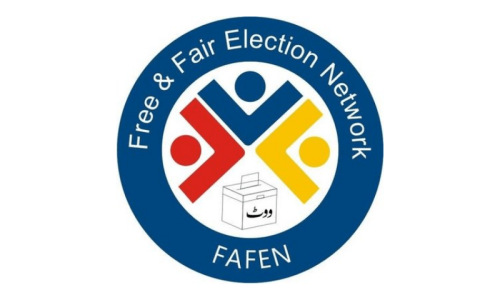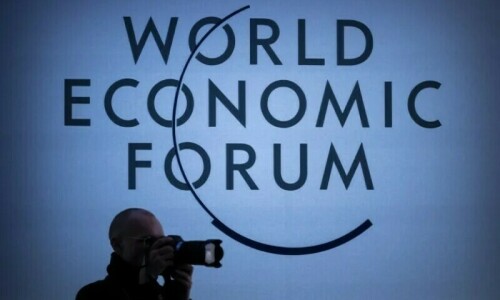STAND-UP comedian Kunal Kamra has made a stimulating point about the growing venality of Indian politics, chiefly the way it has evolved over the last decade. Kunal’s point, which he first minted a few years ago, was one of many he offers impishly and usually faux-persuasively. “Why don’t we elect Mukesh Ambani directly?” That was the quirky question he posed to a cheering audience of mad hatters.
In other words, why should voters waste their vote to elect those who Ambani or any other tycoon would finance to be elected to parliament when it could be cheaper to undercut the middleman, the politician. There would be no need for the opaque electoral bonds, nor any need for quid pro quos. “Who would dare to take suitcases full of currency notes to Ambani? It would be an unnecessary effort.” The comment evoked unalloyed laughter and the picture of tainted stockbroker Harshad Mehta came to life, the one who allegedly proffered a suitcase full of cash to former PM Narasimha Rao.
Kunal’s quaint thought crossed one’s mind again as Mukesh Ambani sat watching the younger of his two sons speak last week to an invited elite in the company of the pretty woman he would marry. The audience heard the son’s emotional speech indulgently and Ambani could be seen wiping tears from his fatherly eyes. Invitees included American businessmen and political entities, most notably led by Ivanka Trump. There were reports of Hillary Clinton showing up, as she had done at previous Ambani weddings, but it would have been perhaps excessive for her to be seen in the same frame with Donald Trump’s feisty daughter.
Besides, Joe Biden, who Hillary had helped create as president by causing the removal of Bernie Sanders from the race in 2020, is on a slippery slope against Trump ahead of the November polls. For our purposes, the abiding fact is that whoever gets the US presidency, Ambani would be in clover with the winner. TV grabs of Gautam Adani’s presence at the pre-wedding gala completed the picture of the power play at work. In 2013, a bunch of these and other businessmen decided to name Narendra Modi as their prime ministerial candidate and threw their weight and money behind him. In other words, they were wary of a Congress-led alliance coming back to power, particularly one in which a scion of the Gandhi family might lead the coalition.
A closer look at Kamra’s outlandish idea reveals an untold truth. The Modi government does resemble a massively advertised business enterprise.
Were these the heirs of businesses Mahatma Gandhi saw as the “trustees of new India”? Gandhiji held several fellow Gujarati-speaking tycoons close to him. They, in turn, swore by his leadership of the Congress, and through it to India’s independence. There is a view that the business community — Gandhi’s trustees — saw Liaquat Ali Khan’s performance as interim finance minister under Nehru’s premiership as too socialist for them to accept a future without partition.
Nehru approached the tycoons differently, not without a hint of suspicion. There were independent exposés by the media during Nehru’s tenure that targeted big names in India’s corporate cluster. A Bengali journalist researched and published a book on G.D. Birla, for example. Called The Mystery of Birla House, the book documented details of tax evasion by the over- and under-invoicing of massive transactions by Gandhiji’s close friend. Such exposés seldom find their way to keen readers in India. A well-researched biography of Dhirubhai Ambani by a Western journalist was mysteriously blocked from sale in India, and activists used photocopied versions to share its shady details.
Similarly, the story goes that Birla bought the entire first edition, and the second edition too. Eventually, he bought the copyright of the book by Debajyoti Burman, which would have gone into oblivion but for a solitary copy that found its way to Delhi’s Nehru Memorial Library. With the money, Burman started a leftist press. Nehru’s Gujarati-speaking son-in-law also exposed underhand businesses in his role as Congress MP. Indira Gandhi went a step further and nationalised their private banks and Rajiv Gandhi warned the tycoons to get off the backs of the Congress workers. It stands to reason that the media today, mainly TV channels owned by Congress-baiting businesses, spare no occasion to slander or lampoon Rahul Gandhi.
A massive opposition rally in Patna on Sunday was designed to rattle the ruling establishment in Delhi, which it did, although TV channels expectedly airbrushed the mammoth gathering. Rahul Gandhi’s presence as a lead speaker must have been even more worrying. Gandhi has been the rare leader together with expelled opposition MP Mahua Moitra who named names of tycoons close to Prime Minister Narendra Modi. Gandhi even flashed a picture in the Lok Sabha on one occasion of Modi travelling in Adani’s private jet. The alleged transgressions in terms of crony benefits gained by businesses, of course, go beyond Modi travelling a tycoon’s jet on this or that occasion.
A closer look at Kamra’s outlandish idea reveals an untold truth, however. The Modi government does in a way resemble a massively advertised business enterprise. There are no press conferences, and as a board meeting functions, there are few clues available from any cabinet meeting about what might have transpired. Therefore, let’s consider the election of tycoons to parliament on one condition, that they hold at least two press conferences per year. The citizens want to know their views not only on the economic parameters of governance, which no doubt would be professionally handled. But given the complex nature of India’s political reality, it would be useful to be privy to the views of the businesses on the steady transformation of India into a majoritarian state.
How do the Ambanis, Adanis and others regard the daily occurrences of communal and caste violence, for example, that drives the politics of majoritarianism? Acknowledging this core concern alone, even if it flows from a cynical profit motive, could make Kamra’s fantasy seem less contrived than the illusion of a ‘new India’ being doled out endlessly.
The writer is Dawn’s correspondent in Delhi.
Published in Dawn, March 5th, 2024
















































Dear visitor, the comments section is undergoing an overhaul and will return soon.